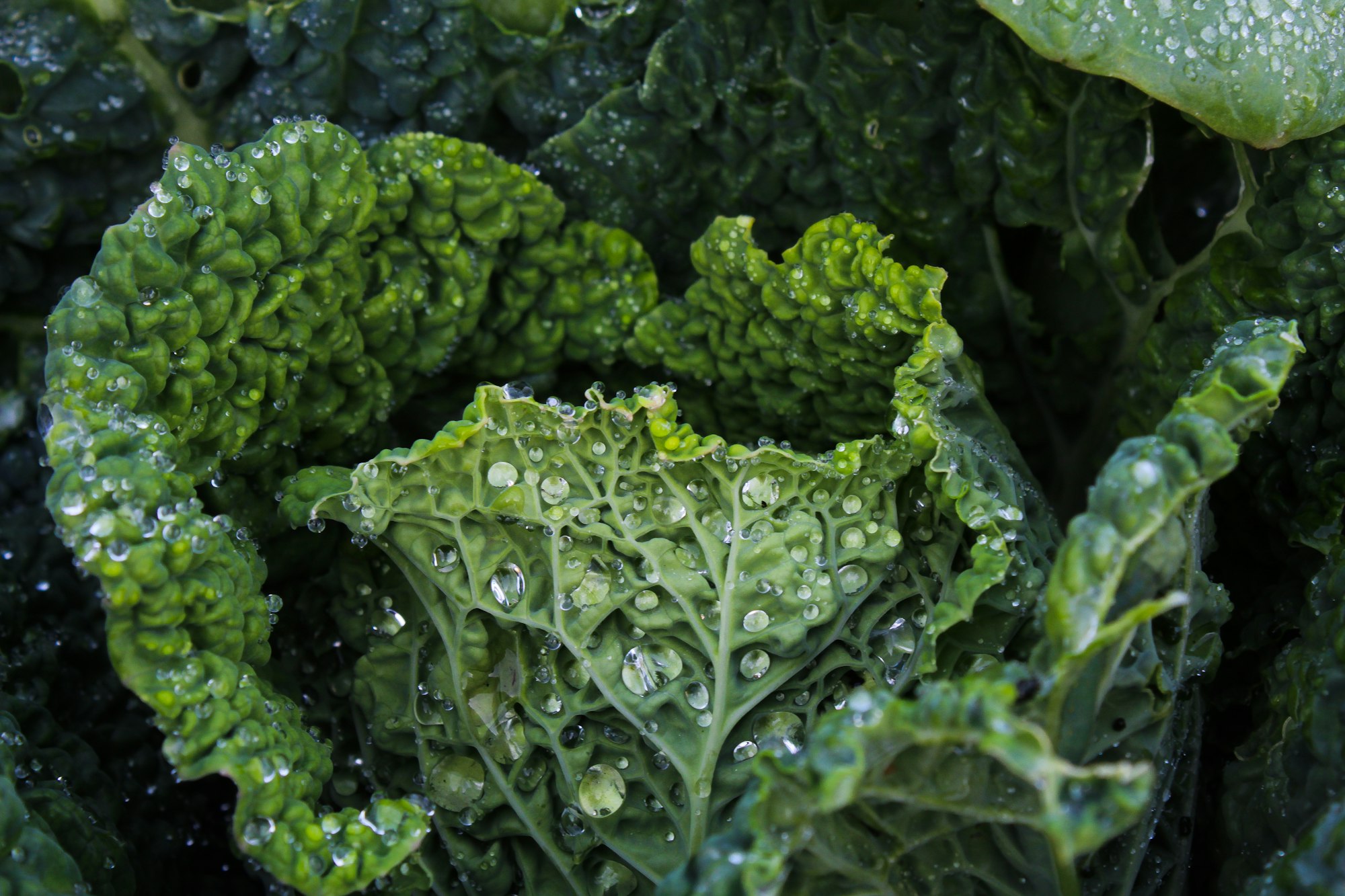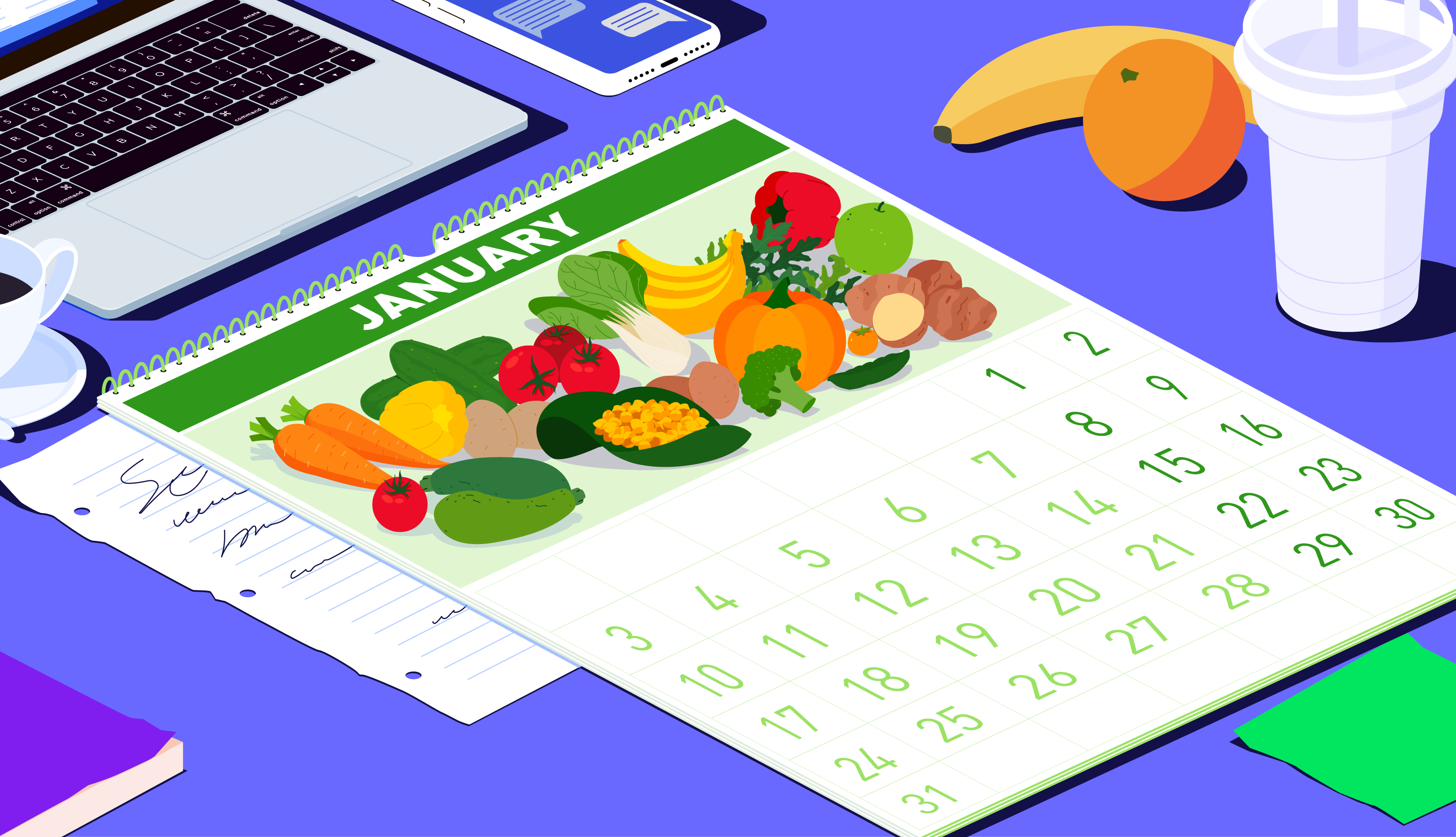To help you this Veganuary, we are going to look at the facts about a plant-based diet, including its health benefits, potential side-effects and how to transition into plant-based living safely. Do vegans need to take supplements? Is it safe to go plant-based whilst pregnant? Is vegan fast food better for you? Find out the answers to these questions and more!
Table of contents:
- What is veganism?
- Is veganism good for your health?
- Important nutrients and where to get them
- Veganism and pregnancy
- Final word
What is veganism?
Veganism is the practice of eating a plant-based diet that excludes all animal products, including fish, poultry, dairy and eggs. People opt to go meat-free for various reasons, whether that be for health, to reduce their carbon footprint or to protect animal welfare. Beyond a diet, veganism is also a philosophy that promotes ethical consumption and environmental awareness.
Whereas vegan alternatives were once few and far between, everyone from Gregs to McDonald's now has a vegan option on the menu. What's more, research suggests that nearly one-third of Brits are keen to go vegan, whilst as many as 35% of those polled think it is an admirable lifestyle choice. Despite this massive shift in public opinion, some are still sceptical of veganism, wearing their meat-eating as a badge of honour and claiming humans need meat to thrive. The popular commentator Joe Rogan is the best example of this.
With environmental issues top of the agenda, veganism only looks set to grow. In a recent study at Oxford University, researchers proclaimed veganism to be the single best thing we can do for the environment, noting that it can reduce our carbon footprint by as much as 73%. But can humans meet all their nutritional needs without consuming meat?
Is it good for your health?
The British Dietetic Association has affirmed that a well-planned plant-based diet can support healthy living in all ages and lifestyle stages. With that being said, it might be necessary to supplement certain nutrients, most notably B12 and iron.
In a study comparing veganism, vegetarianism and an omnivore diet, veganism was shown to be associated with higher dietary fibre intake, lower saturated fats and lower sodium intake, all of which are considered healthy. For example, dietary fibre is essential to gut health and can encourage diversity in the microbiome. Additionally, a lower intake of salt and saturated fats can support cardiovascular health.
In this same study, vegans were found to have the lowest calcium intake among the dietary choices observed, with average consumption falling below the national average. This might partly explain why vegans appear to be at a higher risk for bone fractures.
Nonetheless, veganism was rated the highest on the Healthy Eating Index and most closely paralleled the Mediterranean Diet. This is associated with a variety of health benefits, including reduced risk of heart disease, strokes and Alzheimers. So far, the research also suggests that vegans are less likely to be overweight and therefore have lower blood pressure levels.
A study published in the Journal Of American Heart Association found that a diet high in healthy plant-based foods and low in animal foods was associated with a lower risk of cardiovascular morbidity and mortality in a general population. It must be noted those eating an "unhealthy" plant-based diet did not show the same outcome.
Likewise, an 18 year-long prospective study in the British Medical Journal found that vegetarians, vegans and pescatarians have a lower risk of ischaemic heart disease than omnivores. However, vegetarians (including vegans) had higher rates of haemorrhagic strokes.
To be precise, vegetarians and vegans had ten fewer cases of heart disease per 1000 individuals over ten years than meat-eaters, and three more cases of stroke per 1000 cases over the same period. It is thought this risk of stroke may partly be related to B12 deficiency and lower cholesterol levels.
In short, whilst low cholesterol protects against heart disease and ischemic stroke (blocked arteries), it may be associated with a small risk of hemorrhagic stroke (bleeding in the brain).
Vegan junk food
The rise in vegan alternatives coincides with a rise in what is known as "vegan junk-food", which is no better than regular junk-food options. For example, eating vegan brownies, processed ready meals, and McPlant burgers from Mcdonalds will not give you the necessary nutrients any more than a poor meat-based diet would.
Too often, people associate "plant-based" food with health and believe that the vegan option is always nutritionally better. This is not the case, and in some cases, they may even be worse for you.
With this in mind, avoid processed foods and be sure to cook at home! Why don't you try this simple vegan tzatziki sauce recipe, or our delicious mushroom mélange which is entirely plant-based?
Important nutrients and where to get them
If done right, a plant-based diet appears to boast many health benefits. For starters, a diet high in plant-based fibre can support cardiovascular health, potentially reduce your risk of type-2 diabetes, feed beneficial bacteria in the gut and help with weight maintenance.
To harness these benefits, it is vital that you carefully plan your plant-based diet. Otherwise, you run the risk of developing B12, calcium and iron deficiency, all of which can lead to permanent damage. Below, we have listed some important nutrients with suggestions on how you can get these whilst on a plant-based diet:
☝TIP☝ Check your microbiome status and discover what plant foods can benefit your gut bacteria with the Atlas Microbiome Test.
B12
Vegans can only get B12 through supplements and fortified foods, making it difficult to obtain this essential compound. Foods that include B12 include some fortified soy yoghurts, tofu, cereals and marmite, though it is important to check the labels of individual products.
B12 deficiency can lead to anaemia, chronic fatigue, and nerve damage in the long term. In pregnant mothers, B12 deficiency can also lead to developmental issues in the child. To combat this The Vegan Society recommend that you either:
- Eat B12 fortified foods at least twice a day, aiming for a daily intake of at least 3mcg (micrograms) OR
- Take a 10mcg supplement daily or at least 2000mcg supplement weekly
The NHS recommends that you get around 1.5mcg per day, though The Vegan Society recommends a higher amount as it is absorbed at different rates depending on many variables. Consult your GP before starting any supplementation program.
Simply partaking in Veganuary will not result in a deficiency as it takes longer than a month to develop. Nonetheless, we recommend crafting a sustainable plant-based diet during January and fostering good habits. That way, if you want to continue beyond Veganuary, you will already have the foundations of a balanced and diverse plant-based diet.
Iron

Iron is essential in the production of red blood cells. Interestingly, women are more at risk of an iron deficiency, particularly those following a vegan or vegetarian diet. Though an iron deficiency can have no symptoms at first, you might experience shortness of breath and chronic fatigue over time.
The good news is that a plant-based diet can provide all the iron you need, although plant-based iron may not be absorbed as effectively as meat-based iron. Consuming vitamin C can help your body to absorb iron more effectively and is found in broccoli, oranges, strawberries and peppers.
Here is a list of plant-based foods which are rich in iron:
- Lentils
- Kale
- Dried apricots
- Quinoa
- Beans
- Cashew Nuts
- Dark leafy greens
- Tofu
☝️DID YOU KNOW? Despite the common belief that Guinness is full of iron, it only contains 0.3mg, merely 3% of your daily intake. This means it would require 33 Guinness's to reach the daily limit, something we most certainly do not recommend.
Calcium
You've probably heard people say that calcium is good for your bone health, which is true, but it also plays a role in blood clotting, heart health and nerve functioning. Despite excluding dairy products, vegans can still get sufficient amounts of calcium in their diet.
Some good sources of calcium include:
- Green leafy vegetables (kale, okra and cabbage)
- Calcium-set tofu
- Sesame seeds
- Watercress
- Dried fruits such as figs
- Tahini
- Calcium-fortified plant milk
Vitamin D is essential to help your body absorb calcium, but vegans are at an increased risk of developing a deficiency in this. It can be found in supplements and fortified foods such as breakfast cereals and soya drinks. You can also get vitamin D from natural sunlight, though wear sunscreen and avoid getting burnt.
According to the NHS, all adults, including those who are pregnant, should consider taking a vitamin D supplement throughout the winter months. Always check the label on vitamin D supplements as some sources may contain animal products. What's more, consult a health professional before taking any supplements.
Omega 3 fatty acids

These are healthy fats that can aid cognitive health and support the immune system. The best source of omega 3 fatty acids are oily fish such as mackerel and salmon.
Despite this, the body can produce omega 3 fatty acids from essential fats in plant-based foods such as walnuts, linseeds, rapeseed, hemp and chia seeds. Soya-based foods such as tofu are also a good source of these essential fats.
It is a good idea to opt for rapeseed oil and linseed oil over alternatives such as sesame or sunflower oils, as these are better sources of omega 3 fatty acids. Another option is algae-based omega 3 supplements which might be a good option for pregnant or breastfeeding women.
There is some evidence that omega-3 from plant-based foods does not confer the same protection against heart disease as oily fish. Nonetheless, you can still look after your heart by eating a variety of plant-based fibre, eating whole grains, lowering your salt intake, and avoiding saturated fats.
Can you go vegan if you are pregnant?
Plant-based diets during pregnancy and breastfeeding require a strong awareness of nutritional requirements. Although a vegan lifestyle can support a mother and her child, it does increase the risk of certain deficiencies which can adversely affect an unborn child. These deficiencies include B12, calcium, iron, omega 3 and Vitamin D.
It is recommended that pregnant mothers supplement a plant-based diet with B12 and Vitamin D. Consult your GP or a board-certified nutritionist as they can guide you through the process and help you nourish yourself and your child during pregnancy.
Final word
A plant-based diet can support health in all ages and lifestyle stages with a little bit of planning. Though the research is nascent, studies suggest that a balanced plant-based diet can protect heart health and potentially reduce your risk of type-2 diabetes.
With that being said, an entirely plant-based diet increases your risk of certain nutritional deficiencies, namely in B12, iron, calcium and omega 3, some of which you might need to supplement.
Like any diet, plant-based living can either help or hinder your health, depending on what foods you eat. Plant-based or not, you still need to eat a balanced diet with a variety of fruit and vegetables.
If you are going plant-based, aim to avoid processed foods, eat a variety of different coloured plant-based fibre, plenty of lentils and lots of heart-healthy whole grains. Lastly, consult your GP if you intend to transition to veganism as they can guide you going forwards.
☝️DISCLAIMER☝This article is for informational purposes only. It is not intended to constitute or be a substitute for professional medical advice, diagnosis, or treatment.
















